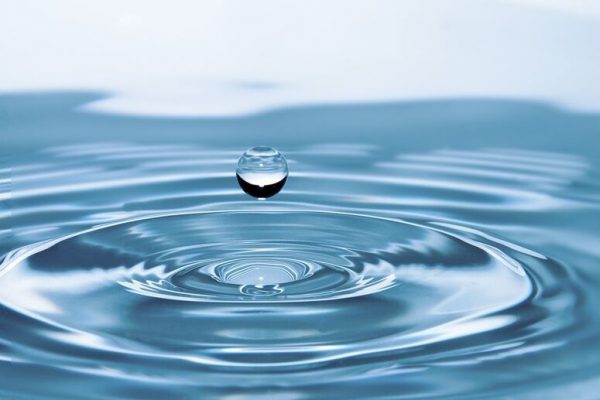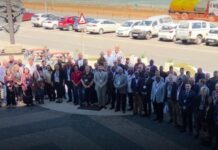In the Nineties, the world was brimming with hope. The Cold War had ended, closing the book on an anxious decades-long standoff that could have tipped the planet into calamity. Democracies that represented the people started to spread, and a new breed of technology called the Internet promised to connect people like never before.
In hindsight, some of that optimism was misplaced. The end of the Cold War was not the end of major conflict. Autocratic and abusive forms of government persist. Even the Internet age has brought new challenges that sometimes make people seem less connected than they were.
It’s easy to simply embrace this new wave of cynicism and give it all up as lost. But if we look more closely, there is a lot to celebrate. For example, says Chetan Mistry, Strategy and Marketing Manager at Xylem Africa, the globe has made massive progress to improve many people’s lives.
“I think we often overlook the fact that since the start of the new millennium, there has been a concerted and successful effort to improve the world. Look at the Millennium Development Goals. Since 1990, over a billion people have been saved from extreme poverty and childhood mortality, the biggest indicator of basic healthcare, has more than halved. Those goals also started a narrative of cooperation and set the stage for new goals that are helping make the world a better place for everyone.”
Establishing the Sustainable Development Goals (SDGs) is one of these achievements: 17 goals that encompass humanity’s greatest challenges. The SDGs include removing hunger and poverty, providing quality education for all, employment and economic growth, reducing inequality, and tackling climate change. At face value, the goals seem quite different. Yet, one thing underpins all of them: water.
South Africa is no stranger to the stress created by water problems. As local experts prepare to attend the upcoming WISA 2024 Conference, hosted by the Water Institute of Southern Africa in mid-June, these issues will dominate discussions. It’s worth, though, examining what else is at stake.
Water is the linchpin of progress
SDG 6 focuses on clean water and sanitation, including universal access to safe and affordable drinking water. It also stands for reducing water pollution and increasing water efficiency. These goals are important, but they also make it seem as if water is just one of the seventeen goals. In reality, it underpins all of them.
“Every SDG has a water component,” says SPOKESPERSON. “Poor access to water increases poverty, both because people spend more effort to get water and because bad water spreads disease. You can’t expect quality education in areas where water access is a problem. Food cultivation needs water, as does energy generation. Sustainability, economic growth, industry, and responsible consumption and production all include water. When those areas perform poorly, equality suffers. And aspects such as peace and the environment are intrinsically linked to water security and purity.”
As such, communities that prioritise water issues lay the groundwork to tackle these other goals. Even if they are not specifically focused on the SDGs, efforts to conserve and manage water responsibly strengthen the networks and knowledge that can tackle other challenges.
“A recent example for this synergy comes from Ghana. There, the water authorities have been working to install smart water meters. That sounds entirely like an infrastructure conversation. However, they discovered several other things along the way. They realised that their general water quality was lower than expected due to dust from Saharan storms. They noted corruption issues between state employees and some community members. They also saw that the amount of water consumption was being underreported, reflecting a general shortfall of public services and a shortage of income that could be used to improve services. Just by following water, Ghanaian leaders exposed several other problems.”
Many parts of the world have stories about how water has impacted growth and prosperity. Today, Stockholm is a powerhouse of development and has some of the best water in the world. Yet, in the 1950s, the city’s water was so dirty that locals wouldn’t even dare swim in nearby lakes and rivers.
“Thanks to forward-thinking decision makers, who invested in the betterment of water around the city, the situation changed. They invested in resilient technologies and took deliberate steps to safeguard water supply,” Stockholm City’s then-Mayor Karin Wanngard told the World Water Week conference in 2016. Water is the gateway to progress, equality, and better lives for all.
An important conversation for South Africa
This ability to change is what’s at stake for attendees at WISA 2024. They will talk about water, but the undercurrent will be about the country’s future. In a situation where only 19 percent of rural South Africans have access to clean water, and many wastewater sites are teetering on collapse, water issues threaten to eclipse the country’s energy and logistics problems.
Yet, those problems also show the opportunity, says Mistry, “It’s quite amazing that when the right people came together and agreed on common goals, we started to see a shift in some of SA’s problems. We’re not out of the woods yet, but I think it speaks volumes about what cooperation and shared priorities can do. Water, though, can be the ultimate shared priority. It can help address poverty, municipal funding, environmental degradation, corporate citizenship, responsible government, and citizen involvement.”
Water solutions also benefit from a new generation of technology solutions and innovative ways to address the above problems, “Real solutions are available. I look forward to the conversations at WISA 2024. They can help start introducing change that will create the right momentum and let us achieve all the sustainable development goals.”








